|
This summer, an unconscionable issue happened to my TV watching schedule: the uber-loud, sloppy 4-hours-a-week show about sexy people trying to find love in a house on a beach was being moved to the same night as my quiet, messy one-hour show about sexy people trying to find love in a house on a beach. Listen, when I was in a relationship with television this would not have been the issue it is Today. But when you live with another human being you have to manage yourself mmmmk? I had to CHOOSE the order in which I would devour my trash and this system is not built for restraint. I'd never watched MTV's Are You The One? before this summer, but somehow my Twitter algorithm knew I'd be hooked on a show about sixteen sexually fluid contestants flung together to be dramatic and lovey and figure out who they were paired with by a crack team of unidentified matchmakers. Bachelor in Paradise, on the other hand, has been my summer companion for these four years or so. I even recapped the behemoth last summer. It's about the rejects from recent (and not-so-recent) seasons of The Bachelor and The Bachelorette, getting drunk and hooking up and yelling and secretively-but-actually-very-very-transparently manipulative. Other than a few token contestants, everyone is very very straight. Any engagements that happen at the end of the season are strictly offered by the man in the relationship to the woman. So discovering AYTO? was like a balm, a breath after the rigidity of the utterly heteronormative BIP. This season BIP offers Demi's same-sex relationship as a vote for love, but AYTO is like that times eight. Like that times a hundred. Like that times infinity. Not to mention that BIP is the Mille Borne of dating shows - it's every man for himself, every woman for herself, either trying to make a relationship work or trying to display a big enough personality to warrant Instagram followers for a good post-show boost. (On the rare occasion, the next Bachelor could be chosen on these shores.) On the flip side, AYTO reads like one of those cooperative socialist board games that requires everyone to either win or lose. Either everyone finds their Perfect Match and they win the money, or they don't. And they're so much NICER for god's sake. Even when it comes to the shows' Venn diagram of archetypes, I have infinitely more patience for one camp over the other. Both shows have the apologetic multiple offender: Blake (BIP) enters Paradise as the hottest ticket and is now getting a bad rap for his actions before the show started: hooking up with multiple women within a 24-hour period, texting multiple women, and then trying to appear on the show without those actions having any bearing on the outcome. Meanwhile, Kai (AYTO), a transmasculine person who identifies as nonbinary, also entered the house as one of the most desirable contestants. In fact, he hooks up with two people on the same night WHILE ON the show. Nour and Jasmine (see gif above) almost come to blows over the drama he causes. While their actions are comparable and both parties come off as selfish, Blake (whether by the producers' hands or otherwise) comes off as careless and stupid while Kai comes off as ... almost sympathetic. Being a trans person, he admits that until recently he didn't find himself attractive and now the constant validation from multiple people wanting him is throwing him for a loop. A free-for-all, let's-hook-up-with-everyone loop. Call me a sap for insecurity, but I found that a lot more convincing than a guy who just thought he could get away with it. Wells, a previous contestant on BIP who now bartends for the current contestants, WISHES he could dispense the incomparable life advice that Basit effortlessly gives out to anyone with any sense in the house. Oddly enough, both shows have a Boom Boom Room, for boom-booming. Wanna guess which one gets more action? I'll give you a hint: It featured a fivesome this season and rhymes with Shar Shou She Shwon. Not to mention, watching AYTO is when it finally hit me why the pronouns currently in American usage are inadequate. I'm watching these people and thinking, "No, this is not he, nor is this a she." There is a crossover space where neither works for a specific person. And let me tell you, it's making me think really hard about how I want to raise my kids and how to present an attitude toward gender that isn't restrictive. It's hard to imagine having that conversation centered on BIP, where the only woman with hair shorter than her shoulders is the lesbian. Where the men are working out by lifting weights and the women only do cardio. Where the lines of gender are written into the rules of rose giving and cute little Demi is giving out the only long-stemmed rose to Kristian on a night of buttonholes. You may ask, why doesn't she just watch AYTO? Why does she continue with the tomfoolery of BIP? Well, nation, I don't really have an answer for you. I was rooting for people on last year's BIP and the one before that - have you seen Raven and Adam lately? they're adorable! - so what am I still doing with FOUR HOURS A WEEK. Maybe it's because when an extremely shy guy finally works up the courage to kiss the woman he likes, the editors do this (start at 4:56): Or maybe it's because a guy can leave to go LIVE IN HIS VAN, then come back and ask the woman he was in a relationship with to come away with him into the sunset. (I legit don't know what she's going to do, the next episode hasn't aired yet): Or maybe it's just really fun to try and figure out how much of this show is the producers' storyline, how much of it is the contestants trying to engineer their own storylines, and how much of it actually genuine and authentic. Because if there's something I can't resist, it's the metafictional narrative of people knowing they're on a reality show trying to pander to that experience. That's something you won't get from a nice group of people trying to soul search so that they can be open to love. Sometimes you just want a bunch of selfish people willing to bodyslam another person for attention.
For more information on why I'm fascinated by people with big personalities being punished for it, please see my sister's wonderful article on the subject: https://aeon.co/essays/is-reality-tv-a-kind-of-bite-size-greek-tragedy
1 Comment
An appreciation post for Betty Gilpin's character on GLOW, Debbie Eagan. Minor spoilers? Maybe some screenshots from season three in addition to vague references. Oh wait, I talk about her relationship in this season a bit. Oh, hello! I just finished GLOW's third season. Between the Sheila, Carmen and Bobby of it all, I'd like to express appreciation for the female character currently on television with whom I'd never want to be friends but who I can't help but admire. Debbie is a former soap star turned sports entertainer (re: wrestling with a pre-planned storyline) turned producer. She is beautiful; when she gets dressed it looks like she had three Kardashian stylists to help her; and she doesn't have an ounce of sympathy anywhere in her toned post-baby body. By any account, Debbie's grievances far outweigh her ambitions. Because of this, she takes power, even if she doesn't know what to do with it. She's surrounded by idiots and uses their stupid reactions to her good looks and status to get MORE out of them. She unabashedly steals people's ideas - from her wrestling character to her producing aspirations - and then proceeds to milk them for all they're worth. The worst thing you can do to Debbie is underestimate her. Her husband (Rich Sommer) underestimated her, so she turned their house into a flea market. Bash (Chris Lowell), the man-child who bankrolls GLOW, underestimated her and so she became a producer herself to put them on equal footing. Her boyfriend this season (Toby Huss) underestimated her so she scooped him on a big deal she knew he was low-balling. So no, Debbie is not a nice person. It's possible that after Ruth (Alison Brie) betrayed her in the first season that she's forgotten how to have friends. Even in the deep, heartwarming conversations she has with coworkers like Cherry (Sydelle Noel) and Tammé (Kia Stevens), they're only really talking about one thing: being a mother.
But in the midst of watching every good-looking female Democrat in this country trying to kick start a presidential campaign - in the midst of watching all of them doing their darndest to look as friendly and nonthreatening as possible - in the midst of watching them all try to present as unHillary as possible - in the midst of watching women trying to be submissive to prove that they can dominate - it feels really good to watch a female character who doesn't care what it looks like when she takes what she wants. I don't know if Showtime's brilliant show "Kidding" developed before or after Jim Carrey was cast. What I do know is that the character he plays, Jeff Pickles, is a very poignant followup to what looks like, from the outside, as Carrey jettisoning his career. Take this interview from September 2017, in which he gleefully expounds on his existential ennui to a panicked E! announcer: There was a narrative surrounding Carrey at the time. This happened two years after his ex-girlfriend committed suicide in 2015. Her family was blaming him for it, trying to sue him. It was in the midst of a popular belief that Jim Carrey had lost it a little bit. Poor, rich celebrity, dealt a bad hand and unable to contend with problems that can't be solved with money.
On "Kidding", which just wrapped up its first season on Sunday, Carrey plays Jeff Pickles, a Mr. Rogers-like character on a children's TV show. The pilot takes place a year after one of Mr. Pickles's identical twin boys (Cole Allen) is killed in a car accident. Mr. Pickles can't seem to deal with the loss head-on and so it manifests in violent ways. This is Carrey's first acting credit since 2016, which technically means he probably hadn't acted since 2015 - the time of his personal life tragedy. It's impossible that the creators of the show didn't take the similarities into consideration. It's impossible that they didn't intend for Mr. Pickles's struggles to inform and be informed by Jim Carrey's real life struggles. The role is so perfect for a celebrity looking to comment on his own celebrity through the medium of acting. It's perfect for Jim Carrey to use Mr. Pickles's gentle demeanor with the children who watch his show as a metaphor for what's good in his life and needs to be protected; juxtaposed with the violent outbursts he has over the course of the show as a demonstration for what happens when that's all you see; juxtaposed with the very real sentiments he expresses about love, loss, loneliness, mistakes, and the failure of our loved ones to protect us from harm, given over in several very literal monologues on "Kidding." There were very few times watching "Kidding" that I remembered Carrey as a celebrity and not as Mr. Pickles, yet his history imbues the messages he preaches with sublime duality. Similarly, Lady Gaga was very clearly cast in "A Star Is Born" because she is Lady Gaga. Certainly this makes sense, seeing as the film is centered on the singing and songwriting ability of her character, Ally. While Ally and Stefani Germanotta have different lives insofar as Ally is from California and Gaga is from New York, watching the film I couldn't forget that I was watching Lady Gaga Without Makeup; Lady Gaga In Orange Wig; Lady Gaga In Gold Lamé Flamenco Dress (even though she'd never wear that in real life). Much has been made of Bradley Cooper's transformation for his role as Jackson Maine: how he developed his voice, aged his appearance, and got a tan. I was taken in by his performance. Cooper is an incredible actor. (Side point: he should not have starred in his directorial debut, there was way too much of his face taking up the screen.) It is no accident that the casting of Lady Gaga and the stories about her first duet together with Cooper and how he mauled her face with a makeup wipe is what dominated the media narrative. I wouldn't be so cynical as to call this stunt casting, but Cooper hand picked Lady Gaga to star opposite him, and that is what he got. The question, as always, is whether the decision serves the story. Is "Kidding" better because Jim Carrey suffered in a similar vein to his character? Are the unique vocals displayed in "A Star Is Born" worth a lesser quality of acting? On a more simplistic level, did the viewer benefit from the gamble or did it become a distraction to the detriment of the final product? By this point of my virtuous rant, you should have my answers already. Why do people like naming guns "Betsy"? Is it like when I name my giant chin zit "Ned"? To hide its potential for violence and social disruption beneath an unassuming, nonthreatening name? Behold:
Edit: As my excellent friend on Facebook points out, here is another example! SPOILER WARNING
I had to wait eight months between the pilot episode of The Marvelous Mrs. Maisel and the rest of its first season. Eight months! For that alone I've given up on Amazon's pilot season. Aside from that was also the frustration that the pilot was the best episode of the show. Nonetheless, I got to every episode as quickly as I could and definitely enjoyed the ride. Like my experience watching Crazy Ex-Girlfriend, Amy Sherman Palladino's Mrs. Maisel provided me with some very nice representation: A twentysomething brown-haired Jewish princess whose over-the-top personality leads to both opportunities and pitfalls. Midge (Rachel Brosnahan), or Miriam, as she's known in her Jewish community, is a 1950's housewife with a beautiful apartment, two kids and a husband, Joel (Michael Zegen), who has ambitions in standup comedy that she can respect. This all comes crashing down when she finds out Joel's been cheating with "the Methodist version of [her]", the apartment is in his father's name, and he's been stealing all of his standup jokes. From there, the plot takes us down a familiar path of redemption in which Midge picks herself up by the bootstraps and discovers her own talent for comedy with the help of club manager Susie (Alex Borstein). My complaints regarding the show as a whole are generally my complaints with any Sherman-Palladino production: The stakes are too low and the secondary characters are caricatures. The show hinges on Brosnahan's performance, though, and she is a continuous wonder. I am certainly guilty of developing a nascent nasal New York accent while binging Mrs. Maisel. And in examining Midge as a character, I was struck by a thought: While the feminist messages of the storylines are anachronistic to the time and therefore dampened, Midge rebuilding her life and coming to terms with her future is not. What we witness over the course of the show is Midge realizing that her values do not serve her and that they need to change. Before Joel leaves her at the beginning of the show, Midge has no reason to believe that the world and values she inherited from her parents should lead her astray. Her life is a carbon copy of her mother's: Two kids, Upper West Side apartment, good standing in the community, an obsession with appearances and a full-fledged eating disorder. After Joel leaves her, however, rather than a simple rebellion, Midge launches into a full value overhaul. Having a perfect life was suppose to be a guarantee; so why didn't it work? The first indication that Midge is changing her value set is evident when Joel tries to come home. He shows up at her building with his tail between his legs, all apologies and prostration - though it's clear he believes she's going to take him back once he's done debasing himself. But Midge doesn't want him back. Knowing it's what her parents want, knowing that her social standing is at stake, she firmly closes that door with no regrets. Midge could have gotten back together with Joel and gone back to her old life. But whether it's because of her pride or because Joel genuinely hurt her and she can't forgive him for that, Midge decides to turn her back on that path and forge a new one. Next come the children: During one of her standup sets, Midge asks a woman in the audience if having breasts means she's supposed to want kids. It's in perfect contrast to what she believed and up until this point we were under the impression that she didn't mind her children - as long as she could leave them with the housekeeper or her parents whenever convenient. As soon as she realizes that having kids isn't something every woman should do, she stops feeling guilty about leaving them at night. She isn't allowing her children to be neglected, but she is removing from herself the burden of caring for them every minute of the day. The next value to go is the belief that women shouldn't work. Once Midge finds out that the apartment doesn't belong to her or Joel, she has to move in with her parents. Anyone who's moved back in after being gone can relate to her resulting tension and stress, and it spurs her on to realize that it's not a sustainable situation. Thus, Midge becomes a makeup counter girl in a department store, putting more of her talents to use. While her parents wring their hands and guilt Joel about it, Midge finds herself enjoying the work (once she finds appropriate footwear) and taking advantage of the new social life it offers. Midge also goes through something of an identity crisis, which is how we get the whole shtick with her Amanda Gleason pseudonym. If she can't be herself downtown, she might as well be some gentile off the block. This, too, is upended though. After the set in which she commits career suicide by disparaging a famous female comic, Midge comes to understand that her identity must be linked to her past and present. While she may no longer be Joel's wife or have that lifestyle anymore, she reclaims the identity of "Mrs. Maisel" as the trash-talking, profanity-laden standup comic she was born to be. Her decision to use her real name also shows how she's developed enough to not be ashamed of that identity. Rather than hide her downtown dealings from her uptown community, she's learned to integrate the two without shame. For all its flaws, The Marvelous Mrs. Maisel is a fun show. Not to mention I'm a sucker for a loudmouth and a woman going through an emotional meltdown with pristine lipstick. While Midge's position as a standup comic isn't necessarily groundbreaking television in 2017, I find the transformation she goes through as a product of her family and culture extremely relevant. Not to mention entertaining. Confession time: I watched the Dirty Dancing remake and I liked it. Specifically, I liked the screenplay. I could have done without the wooden acting; the "spontaneous" singing from everyone, all the time; the unnecessary melodrama in the delivery of certain lines. However, it was inspiring to see not-size-zero Abigail Breslin get the same treatment that Jennifer Grey did. And though the guy who plays Johnny (Colt Prattes) has super dead eyes most of the time, being able to act through dancing is not an insignificant talent – and both he and Breslin are really good at that.
But back to the screenplay: Written by Jessica Sharzer, this version of Dirty Dancing doesn't do what so many remakes before it have done – namely, a literal beat-for-beat recreation of the source material. (See: Beauty and the Beast.) Originally written by Eleanor Bergstein, Sharzer rewrote the movie with added depth. Her screenplay explores story lines hinted at in the original: Baby's mother (Debra Messing) is a frustrated housewife contemplating divorce. Kellerman's son (Trevor Einhorn) tries to impress Baby with knowledge of The Feminine Mystique. Robbie (Shane Harper) really is a dirtbag, like, salt in the wound uber-dirtbag. (But yeah – didn't really find it necessary for Baby's sister (Sarah Hyland) to become a Hairspray-style checkerboard chick who sings Bob Dylan, or for Johnny to be a dyslexic ex-con.) Sharzer's working with the material means that she recognized and respected the audience's familiarity with the original movie. Obviously the people watching her remake would know the 1987 version by heart, and any lines lifted directly from it would feel disassociated and hollow. It's like a cover of a classic rock song where the singer knows her voice isn't as good, but by looking for new meaning in the piece she can bring something else to the table. Watching the 2017 Dirty Dancing feels like a commentary on the original 1987 Dirty Dancing. Adaptation is a tricky process, and I love when it's done in a new and original way. I felt the same watching Syfy's television show, The Magicians (2015-present). Now two seasons in, it's an adaptation of the book series by Lev Grossman. Take some young angsty millennials in modern times and have them learn that magic exists, along with their versions of Narnia and Hogwarts -- Fillory and Brakebills, respectively. The antagonist is a sadistic creature called The Beast. Another character informs students that she's been using time warps to figure out what the students can do to finally defeat The Beast in the present. In all honesty, I stopped reading the series after the first book, but my friend liked it so much that I got the sequel for us both to read. The sequel is when protagonist Quentin goes to Fillory and boy, does it pick up speed there. It's also where Quentin's best friend from childhood, Julia, gets her story told. The third book was even better, the best in my opinion. While Quentin is often perceived as depressive and whiny - getting by mostly on his intellect and willingness to try anything - Julia doesn't get that luxury. In the books, she is rejected from Brakebills. The memory wipe of her entrance exam doesn't work, though, so she picks herself up and figures out how to become a hedge witch instead, learning magic outside of the clean and safe academia. Her story is tragic and it details the sacrifices she has to make to get what Quentin is handed on a silver platter. When the Syfy series began, it was clear from the pilot that we weren't going to have to wait around for Fillory like we did in the books. Neither, as it turned out, did we have to wait for Julia (Stella Maeve). Quentin (Jason Ralph) gets in to Brakebills as he does in the books, and Julia's story parallels his from there. The series, however, works the material even further: Julia's rejection from Brakebills is not arbitrary in the series. Her rejection isn't because she's not smart enough or talented enough, because clearly she is. She proves herself more resilient and powerful than many of the successful students. Instead, in all of the previous time warps used to calculate The Beast (Charles Mesure), she was a student at Brakebills. She was happy and learning and not abused. The difference in the present time warp was that she was rejected and thus had to go on her journey to learn her magic on the streets, bargain for it, work for it, and therefore be able to defeat him this time around. Her pain is given more meaning in this version of events. Instead of repeating the material over, Syfy's series - the creation of which Grossman is extremely involved in, by the way - works the material in a new way to create a new experience. It's building on the books and the story they tell. Remakes don't have to be nostalgic revisits of old stories. In both the Dirty Dancing remake and The Magicians, I felt that through the adaptation process the writers were able to enrich the original story with a commentary. To be honest, fangirling – when your mind enters a fictional world so intensely that you develop territorial tendencies that border on the loyalty you feel for your immediate family – has always scared me a little bit. My teenage encounter with Buffy the Vampire Slayer coincided with my first experience of binge watching. And man, did that show take over my brain. After watching a couple of episodes in a row, trying to understand how a one-hour TV show could occupy me longer than any movie I had ever seen, I became obsessed. I thought, dreamt, breathed Buffy in a way that I never had about something fictional. Even the fantasy books that I read growing up (the ones that made me want to write my own fantasy books, the ones that kept me busy for hours in a corner by myself, the ones that made me so happy that my own writing was actually just rewriting the fantasy books I was reading) didn't take over my imagination the way Buffy did. Because of my awareness of that all-encompassing infatuation – along with a religion-inspired need to believe I cared about more than just television – I stopped watching it. Cold turkey. I had enough under my belt to talk to people about it, to appreciate the Sunnydale High School T-shirt a fellow intern was wearing the first day I met him, but I full-on rejected the feeling that resulted from immersion in Joss Whedon's vampire world.
Enter J.J. Abrams. When the new trilogy of Star Wars was announced, I was excited; but I wouldn't say elated. I had watched all of the films when I was a preteen, around the time Episode I and II came out. I did have to wait for Episode III until I was a teenager, glaring at the computer screen when I realized I would have to wait until 2005 for it to come out – 2005! three whole years! – and learning how to be patient for movie release dates for the first time. I liked the films a lot. I was proud to be able to talk about them with my older siblings. Yet I didn't watch any of the films again after that initial encounter. So when Episode VII was announced, I was excited and planned on seeing it after the hype died down. A week before The Force Awakens hit theaters, I noticed that few of my contacts on Facebook and Twitter were rewatching all of the old Star Wars films. At first I was skeptical, thinking of the sheer number of hours it would take to get through the series. But I changed my tune pretty soon. As Episode VII's release drew nearer, I found myself committing to the same process. It appealed to me in some way: Work hard by getting through the old ones in order to enjoy the new ones better. Okay, I said to myself. Yeah. Let's do this. I started with The Phantom Menace because, like I said, I wanted to work hard in order to reap the benefits. And boy did I work hard. Watching the first three episodes first was mind-numbing. The ratio of minutes to action is bogglingly high. I did, however, get the benefit of (sort of) keeping track of what was going on in the Senate for the first time. (I was also able to recognize Global Treasure Keira Knightley this time around in her geisha makeup.) Now this may be a direct result of the fact that I started teaching high school at the beginning of the year, but one of my readings of the story arc in Episode I, II and III is about teaching. About the effects of good teachers and bad teachers. Yoda is a good teacher – we already know this from Luke's successful training in the original Star Wars. Palpatine is also a good teacher, in the sense that his students – Count Dooku and Anakin – continued the mission that he taught them. Qui-Gon is a good teacher, because his student Obi-Wan Kenobi continued his legacy as a stellar representation of the Light Side. But Obi-Wan himself is not a good teacher. While I agree that the failure to align Anakin with the Light Side is due in part to him being too old, as the Jedi Council foresaw, as well as his generally childish attitude, I'd posit that Qui-Gon or Yoda might have been able to steer him despite all that. Obi-Wan was not up to the challenge. He let Anakin's delusions of grandeur balloon and affect his behavior, let the chutzpah ooze from him in nearly every interaction. I'd also suggest that in Episode VII, it turns out that Luke wasn't a good teacher either. His student, Kylo Ren, was tempted to the Dark Side and he massacred the next generation of Jedi – much the way Anakin did in Episode III. Once I got through the first three episodes, I slinked into Episode IV: A New Hope without too much hope on my part. But boy did I get blown away. It was a mechaya to experience an enjoyable Star Wars movie after trudging through the first three. I couldn't believe how pleasurable it was to watch Luke, Han and Leia flying through the galaxy, kicking ass and taking names. I didn't realize how truly whiny Luke is in the beginning, which makes Anakin's arc a little more understandable. Not to mention how morally ambiguous Han Solo's actions are at every turn. One of the fun things about the original three movies, though, is how complementary the three main characters' personalities are. They all have flaws that keep them from defeating the Dark Side on their own. They all need each other to accomplish that ultimate goal. Nonetheless, it never feels clear whether or not they'll actually be there for each other in the eleventh hour. When Luke abandons his Jedi training to go save Han and Leia, it feels like a turning point that could become fatal. If he fails in his self-appointed mission, not only will it all have been for naught, but – as we later see – he would have given up on finishing his training completely. But he succeeds, and then he has to face Darth Vader and the Emperor on his own and witness the death of his father. When he returns to his friends, none of them can understand what he's gone through. They see a change in him, but it's not something they can relate to. Luke is on his own, the only Jedi left in the world. All of this is to say that by the time I went to see The Force Awakens on Christmas Day, I had watched all seven Star Wars movies in the space of a week. A week! I never would have guessed I could do it but after the fact, I wouldn't do it any other way. I went into that new Star Wars movie with the wide-eyed excitement I first felt for the films back when I was twelve, sitting in my basement, watching VHS tapes on a VCR that couldn't rewind. I got goosebumps – as I had each of the six previous times I had seen and heard it that week – when the combination of the logo and theme music burst onto the screen in the dark theater. I watched Rey and BB-8 trying to figure out their place in the galaxy. I looked out for all the callbacks to the older movies. I enjoyed Kylo Ren's face reveal scene much more than I should have. (A hot Darth Vader, woohoo!) More than anything, though, the movie was fun, and I had a great time watching it. It made me remember how fun it is to fangirl about something without a trace of guilt. Now that the hype has died down, I no longer feel the need to buy Star Wars merchandise, or decorate my walls with Star Wars travel posters. But I do have a lingering desire to feel that excitement again. I've been wanting to see The Force Awakens again since I left the theater, but I promised myself I wouldn't go see it again for at least two months. February 25, here I come. I was a preteen when my family moved back to America in the fall of 2001. In the pre-Internet age, Israel had been in its own little bubble of eighties music and the occasional American blockbuster making its way to our theaters months after its stateside release. Suddenly, my sister and I had access to all of the movies that the actual Blockbuster could offer. We had access to music when it became available. Never before had I understood why some bands were on tour while others were not, but now I could see it was to promote a new album. We dipped our toes into the shining plastic world of American pop culture and then took a headlong dive into it.
More than anything, though, my sister and I immediately became obsessed with the Disney Channel – even though we were on the older end of its target demographic. We had caught glimpses of it during summer vacations to New York, but never had we been able to turn it on whenever we wanted. We were entranced. Our television watching habits became so bad in those first couple of months that our parents restricted us to three episodes a week. We were addicted to Disney Channel Original Series, devouring the likes of Even Stevens, That's So Raven, and, above all, the queen, Lizzie McGuire. We kept track of when Disney Channel Original Movies premiered so that we could watch Cadet Kelly and Get a Clue as soon as they came out. We must have watched Motocrossed twenty times. I wanted to be in Zenon: Girl of the 21st Century so badly. (It's probably what convinced me that sci-fi can be as good as fantasy.) I left for college the year that Hannah Montana and High School Musical came out and I was secretly jealous that I wasn't "allowed" to like the Disney Channel anymore because I was supposed to have matured. (Didn't stop me anyway.) For me, the attraction had to be that for the first time I was seeing programming aimed specifically at me. Before experiencing the Disney Channel, I watched Disney cartoons and movies that could have been targeted to anyone. Matilda and Aladdin are generation-spanning stories designed to be enjoyed by whoever is in the audience. The Disney Channel, on the other hand, was made for kids ages 6-14 – and no one else. The shows and movies were about preteens taking risks and getting into trouble, paving the way for their impending adolescence. Someone five years older than me couldn't have enjoyed the programs on the Disney Channel because they weren't created for her. Of course, they didn't always get it right. It's not like the suits in California had a Skins-like writing staff to inform the old fogies of what's cool and on-trend with the kids these days. But the writers knew enough to give their viewers a prototype of what a model popular girl looks like, and therefore what we could strive to look and act like. Hilary Duff was supposed to be a super-awkward wannabe as Lizzie McGuire, but we all knew that you would have to be crazy to want to be Kate, the ostensible Popular Girl, instead of Lizzie. (That could be because intercut with Lizzie McGuire episodes were snippets of interviews with Hilary Duff, wearing the cutest clothes and generally being the cutest, in a way that was interchangeable with her character.) Because Lizzie had the greatest friendships around with Miranda and Gordo. As did Raven, with Chelsea and Eddie. And if Even Stevens taught me anything, it was that you could hate your sibling and still be the closest people on the planet. The characters in these shows always got into trouble. They were always mischievous. They were always chasing after girls/boys and obsessing over their pre-sexuality. But the resolution of their bad decisions always ended up leading them to stronger bonds of friendship. In that sense, the writers understood that loyalty would speak to a preteen audience more than anything else. Nowadays, as a Millennial, the world of entertainment is at my feet, clamoring for my attention and trying to please me and my generation with their programming. I can watch any channel on television and decide if I like what I see. I am the ultimate consumer, molding California studios to my taste. Oh, you guys like Glee? Here, take Smash, Nashville and Crazy Ex-Girlfriend. Women in politics! You guys like women in politics! Here's The Good Wife, Madame Secretary and Scandal. Gays? Bring on the gays! Here's Looking, The New Normal and How to Get Away with Murder. While it's nice to have more options (and the reminder of how I'm getting older and therefore my mortality), I look back on my encyclopedic knowledge of early 00's Disney stars with fondness and appreciation. The Disney Channel made me feel special. It acknowledged my struggles and gave me a sense of community, that I could be like the kids I was watching – if I wanted to be. I think more than anything, though, the Disney Channel taught me that my opinion mattered before the world decided it did. For that I'm grateful.
"Good artists copy; great artists steal." This concept explains roughly 85% of the witty things people say in everyday conversation. I've only ever caught two people in the act of stealing witticisms. I'd like to think that my pop culture radar is so developed that these were the only two to fly under, but my utter cluelessness in these cases would indicate otherwise.
The first time it happened, a friend of friend – call him Mark – had come into town and my crew was showing him around Chicago. After the Bean and karaoke at Trader Todd's, we were merrily driving home when someone mentioned The Godfather. "You know what I hate about The Godfather?" says Mark. "It insists on itself." While I didn't agree with the statement entirely (some artworks are allowed leeway to insist as such, and I won't penalize them for being accurate), I did have to admire the sentiment. It was an interesting concept. A great concept. Yes, The Godfather definitely had the conceit of a work that knows it's going to be remembered as a class and thus can take itself as seriously as it pleases. A couple of years later, I was walking with my brother and his wife down Riverside Drive in New York City. The Godfather comes up and my brother says, "I did not care for The Godfather. It insists upon itself." I nearly lost it. My brother, stunned and mildly curious, informed me that he was quoting a scene from Family Guy.
I was flabbergasted. I had never experienced someone completely ripping off a joke like that, and in a way that could be proven so easily. If someone had recognized the reference during that car ride, I guess Mark could have played it off. But no one did and so he didn't have to.
Of course, as I was to learn when the same scenario repeated itself, people do indeed accomplish that with full intention. Years ago, when voicemail recordings were more of an artform and a novelty than they are now, my entire family was enchanted by a particular person's voicemail. Call him Jacob. Jacob's recording went something like this: "Believe or not, Jacob isn't home! Please leave a message on the phone. Is he in bed or maybe drinking tea? Where could he be!" We would sing the little song at each other - as well as in front of Jacob. It wasn't until this year, when I watched Kat Dennings interact with Jason Alexander on a talk show, that I heard George's voicemail from Seinfeld. It was the same tune, the same self-aggrandizing third person, the same great sense of self-deprecating humor. The familiar feeling from my experience with Mark's reference crept back in: euphoria at my discovery mixed with the sinking weight of disappointment.
Mark and Jacob thought they were stealing when in reality they were only borrowing. On some level I should admire what they accomplished, but I can't help be disappointed - that they weren't as original as they claimed, or that in the world at large I don't personally know whoever came up with that material. Or maybe I'm sad that I could see the behind the window dressings, to the man behind the curtain, to the magician rigging up his carefully-plotted machinations.
|
Thoughts with AlisaCurrent writing on pop culture. Also known as my post-graduate school writing motivation. Archives
July 2020
Categories
All
|
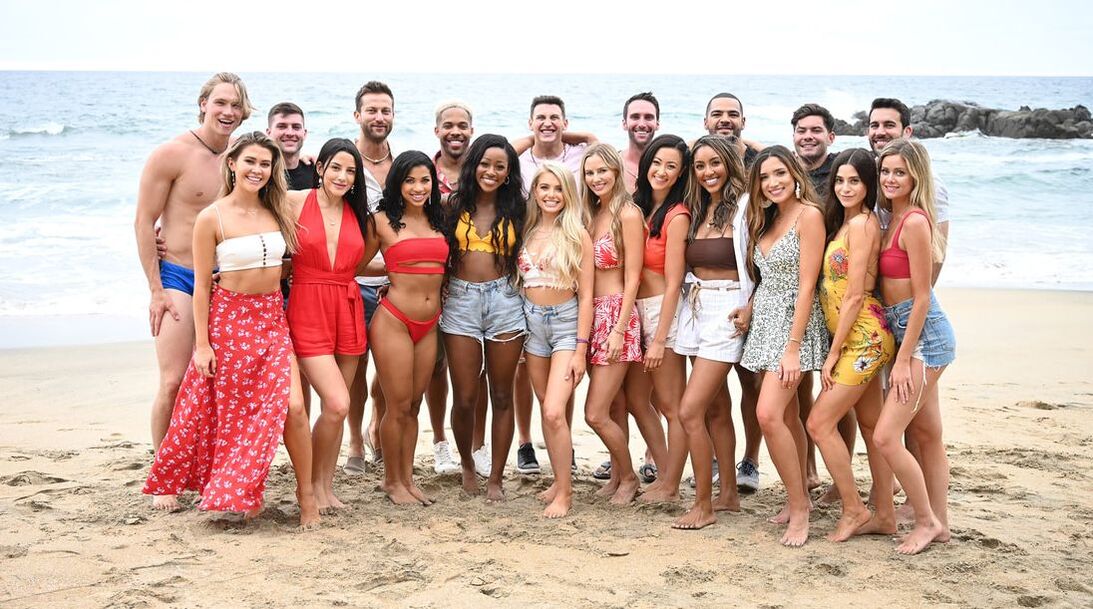
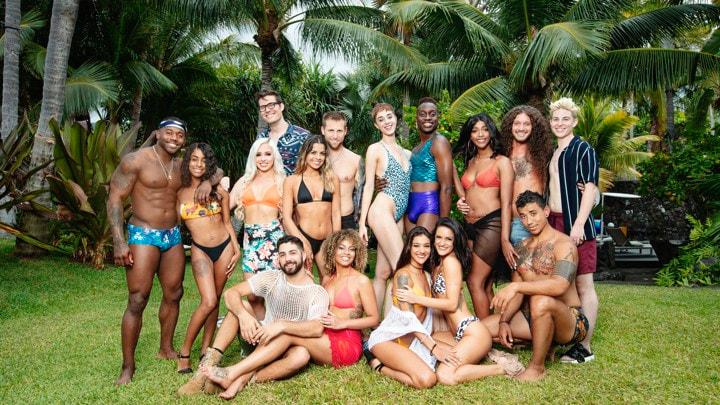
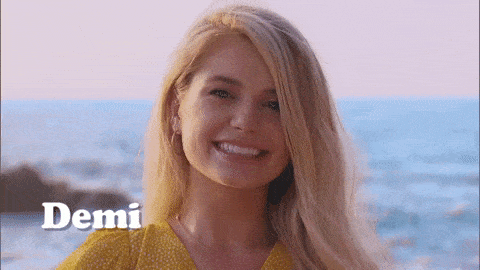
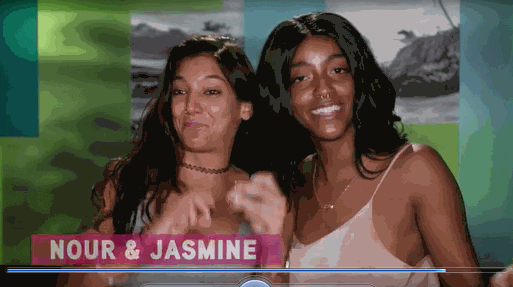
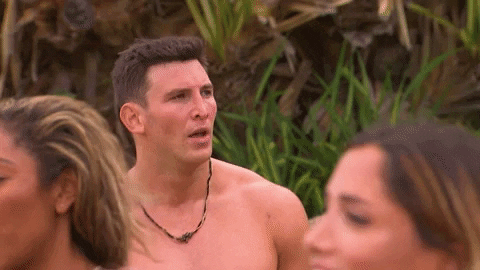
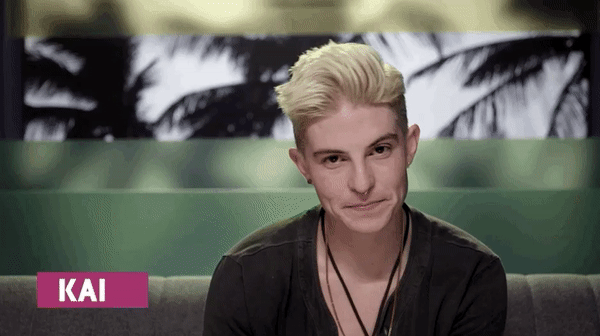
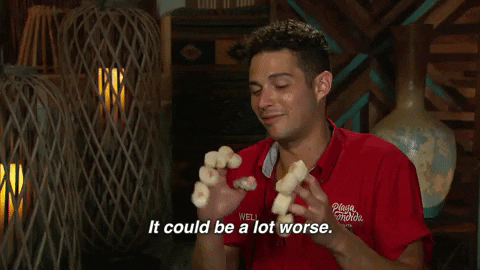
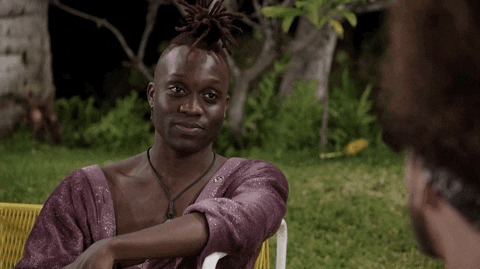
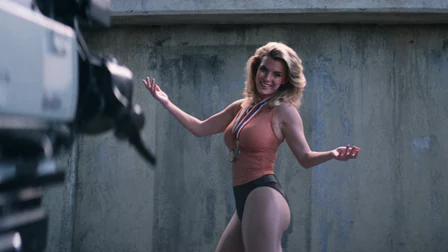
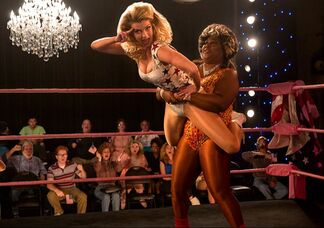
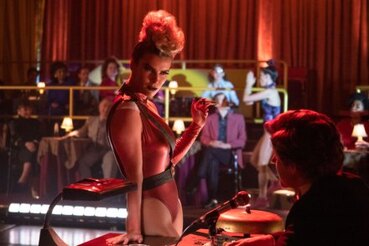
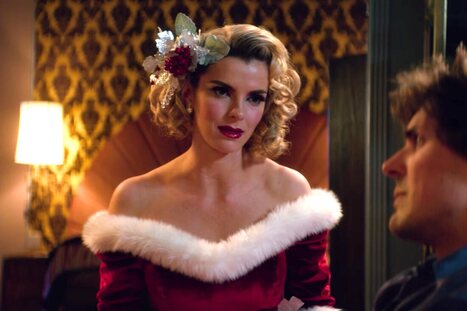
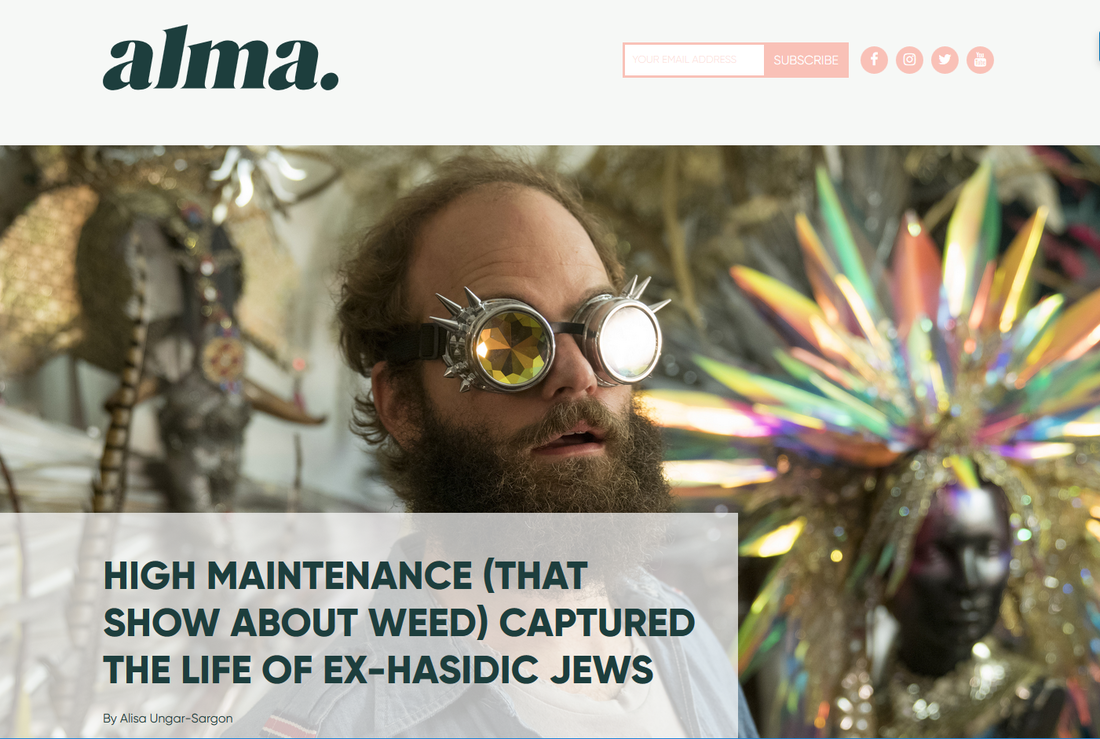
 RSS Feed
RSS Feed